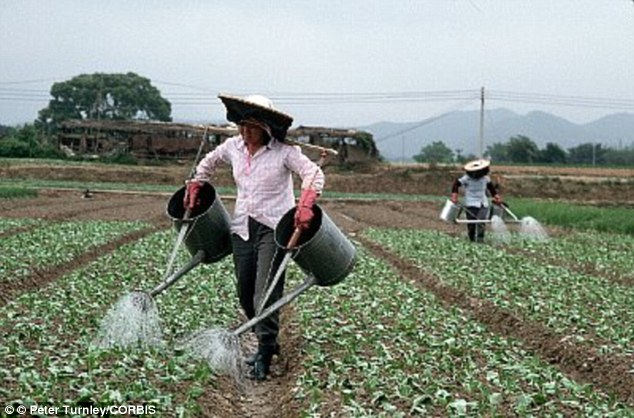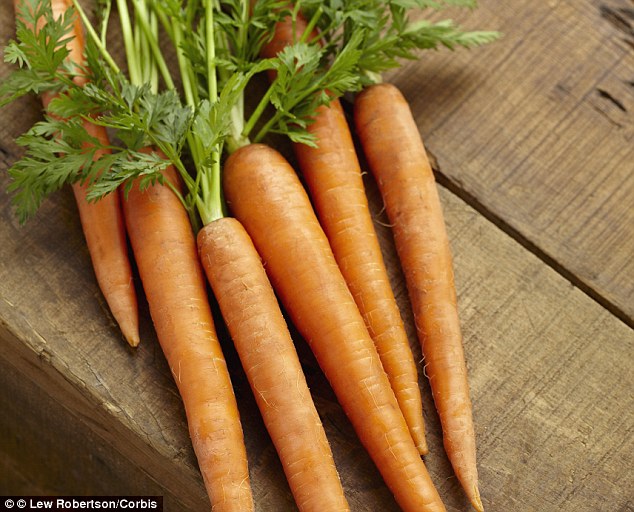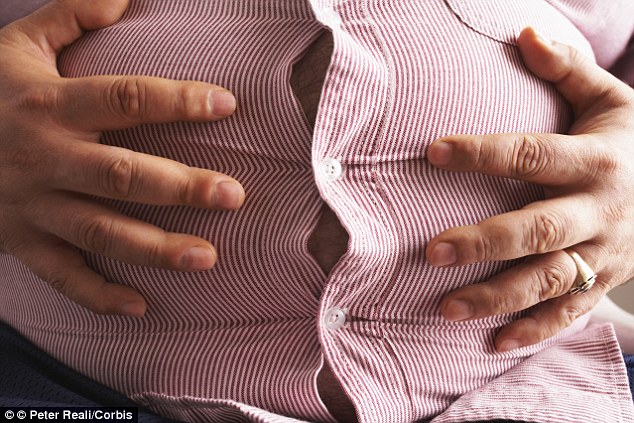R.B
JF-Expert Member
- May 10, 2012
- 6,296
- 2,575
Climate change 'will kill half a million people' by 2050: Global warming will ruin crops leading to disease and malnutrition
At least half a million people will die in the year 2050 as a result of the impact climate change will have on food production, according to experts.
The stark forecast is expected to occur because of changes in diet and bodyweight from reduced crop productivity.
Most of these additional deaths will be in China, India, and other low-income countries in the Pacific and Asia, but the effects on food availability will also reach into richer countries.

+3
At least half a million people will die in the year 2050 as a result of the impact climate change will have on food production, according to experts. Most of these additional deaths will be in China, India, and other low-income countries in the Pacific and Asia, but the effects on food availability will also reach into richer countries
Writing in The Lancet, Dr Marco Springmann from the Oxford Martin Programme on the Future of Food at University of Oxford claimed climate change could cut improvements in food availability by about a third by 2050.
This would lead to around 3.2 per cent less food being available for the average person.
In particular, this will include reductions in fruit, vegetables, and red meat amounting to about 99kcal fewer calories per person per day.
These changes in food availability will also increase non-communicable conditions such as heart disease, stroke, and cancer, said Dr Springmann.
The modelling predicts the effects of climate change on food production could be responsible for around 529,000 extra deaths in 2050.

+3
By 2050 about 3.2 per cent less food will be available for the average person. This will include reductions in fruit, vegetables, and red meat amounting to about 99kcal per person per day
It's not all bad news, however.
The reduction in food availability is being predicted to cut obesity-related deaths by 260,000, but even this is slightly less than the 266,000 extra deaths predicted as a result of people being underweight.
STUDYING CLIMATE CHANGE
The researchers used an agricultural economic model with data on emission predictions and possible climate responses to evaluate the effects on global food production, trade, and consumption for 2050.
They calculated the additional number of deaths linked to changes in diet and body weight under a middle-of-the road development scenario and four different climate change scenarios, compared to a world without climate change.
The modelling predicts the effects of climate change on production could be responsible for around 529,000 extra deaths in 2050.
It's not all bad news, however, with the reduction in food availability being predicted to cut obesity-related deaths by 260,000.
The reduction in red meat consumption is expected to prevent 29,000 deaths each year, but reductions in fruit and vegetable intake would lead to 534,000 additional deaths.
The majority of the deaths caused by a shortage of fruit and vegetables will be in high-income countries including Europe and North America.
'Much research has looked at food security, but little has focused on the wider health effects of agricultural production', explained Springmann.
'Changes in food availability and intake also affect dietary and weight-related risk factors such as low fruit and vegetable intake, high red meat consumption, and high bodyweight.
'Even modest reductions in the availability of food could lead to changes in the energy content and composition of diets, and these changes will have major consequences for health,' he added.
Springmann and colleagues used an agricultural economic model with data on emission predictions and possible climate responses to evaluate the effects on global food production, trade, and consumption for 2050.

+3
It's not all bad news, however. The reduction in food availability is being predicted to cut obesity-related deaths by 260,000, but even this is slightly less than the 266,000 extra deaths predicted as a result of people being underweight. Stock image pictured
They calculated the additional number of deaths linked to changes in diet and bodyweight under a middle-of-the road development scenario and four different climate change scenarios, compared to a world without climate change.
FOOD AVAILABILITY IN 2050
The study reveals that, unless action is taken to reduce global emissions, climate change could cut the projected improvement in food availability by about a third by 2050.
This could lead to average per-person reductions in:
- Food availability of 3.2 per cent (99 kcal per day)
- Fruit and vegetable intake of 4.0 per cent (14.9g per day)
- Red meat consumption of 0.7 per cent (0.5g per day)
The effects of climate change on food production could be responsible for around 529,000 extra deaths in 2050, the study said.
'This is a valiant attempt to quantify the effects of climate change on the future of food production.
'The authors highlight some potentially important issues about the impacts of climate change on our future health,' said Prof Andrew Challinor, Professor of Climate Impacts at the University of Leeds.
'Of course it's very difficult to estimate exactly what those impacts will be,' he added.
'What we can say for certain is that the pressures on agricultural production will certainly be greater because of climate change.
'Year to year variability of food production will become greater, which will make global food markets more unpredictable.
'And extreme climatic events will become more common, such as the wheat harvest failure in Russia in 2010 which affected UK food prices.
'The effects of these events on global food availability and prices will be felt in the UK and around the world.'
- Oxford scientists say the reduction in food will increase many diseases
- By 2050 an average of 99 fewer calories will be consumed per person a day
- Poorer nutrition will also increase many non-communicable diseases
At least half a million people will die in the year 2050 as a result of the impact climate change will have on food production, according to experts.
The stark forecast is expected to occur because of changes in diet and bodyweight from reduced crop productivity.
Most of these additional deaths will be in China, India, and other low-income countries in the Pacific and Asia, but the effects on food availability will also reach into richer countries.

+3
At least half a million people will die in the year 2050 as a result of the impact climate change will have on food production, according to experts. Most of these additional deaths will be in China, India, and other low-income countries in the Pacific and Asia, but the effects on food availability will also reach into richer countries
Writing in The Lancet, Dr Marco Springmann from the Oxford Martin Programme on the Future of Food at University of Oxford claimed climate change could cut improvements in food availability by about a third by 2050.
This would lead to around 3.2 per cent less food being available for the average person.
In particular, this will include reductions in fruit, vegetables, and red meat amounting to about 99kcal fewer calories per person per day.
These changes in food availability will also increase non-communicable conditions such as heart disease, stroke, and cancer, said Dr Springmann.
The modelling predicts the effects of climate change on food production could be responsible for around 529,000 extra deaths in 2050.

+3
By 2050 about 3.2 per cent less food will be available for the average person. This will include reductions in fruit, vegetables, and red meat amounting to about 99kcal per person per day
It's not all bad news, however.
The reduction in food availability is being predicted to cut obesity-related deaths by 260,000, but even this is slightly less than the 266,000 extra deaths predicted as a result of people being underweight.
STUDYING CLIMATE CHANGE
The researchers used an agricultural economic model with data on emission predictions and possible climate responses to evaluate the effects on global food production, trade, and consumption for 2050.
They calculated the additional number of deaths linked to changes in diet and body weight under a middle-of-the road development scenario and four different climate change scenarios, compared to a world without climate change.
The modelling predicts the effects of climate change on production could be responsible for around 529,000 extra deaths in 2050.
It's not all bad news, however, with the reduction in food availability being predicted to cut obesity-related deaths by 260,000.
The reduction in red meat consumption is expected to prevent 29,000 deaths each year, but reductions in fruit and vegetable intake would lead to 534,000 additional deaths.
The majority of the deaths caused by a shortage of fruit and vegetables will be in high-income countries including Europe and North America.
'Much research has looked at food security, but little has focused on the wider health effects of agricultural production', explained Springmann.
'Changes in food availability and intake also affect dietary and weight-related risk factors such as low fruit and vegetable intake, high red meat consumption, and high bodyweight.
'Even modest reductions in the availability of food could lead to changes in the energy content and composition of diets, and these changes will have major consequences for health,' he added.
Springmann and colleagues used an agricultural economic model with data on emission predictions and possible climate responses to evaluate the effects on global food production, trade, and consumption for 2050.

+3
It's not all bad news, however. The reduction in food availability is being predicted to cut obesity-related deaths by 260,000, but even this is slightly less than the 266,000 extra deaths predicted as a result of people being underweight. Stock image pictured
They calculated the additional number of deaths linked to changes in diet and bodyweight under a middle-of-the road development scenario and four different climate change scenarios, compared to a world without climate change.
FOOD AVAILABILITY IN 2050
The study reveals that, unless action is taken to reduce global emissions, climate change could cut the projected improvement in food availability by about a third by 2050.
This could lead to average per-person reductions in:
- Food availability of 3.2 per cent (99 kcal per day)
- Fruit and vegetable intake of 4.0 per cent (14.9g per day)
- Red meat consumption of 0.7 per cent (0.5g per day)
The effects of climate change on food production could be responsible for around 529,000 extra deaths in 2050, the study said.
'This is a valiant attempt to quantify the effects of climate change on the future of food production.
'The authors highlight some potentially important issues about the impacts of climate change on our future health,' said Prof Andrew Challinor, Professor of Climate Impacts at the University of Leeds.
'Of course it's very difficult to estimate exactly what those impacts will be,' he added.
'What we can say for certain is that the pressures on agricultural production will certainly be greater because of climate change.
'Year to year variability of food production will become greater, which will make global food markets more unpredictable.
'And extreme climatic events will become more common, such as the wheat harvest failure in Russia in 2010 which affected UK food prices.
'The effects of these events on global food availability and prices will be felt in the UK and around the world.'